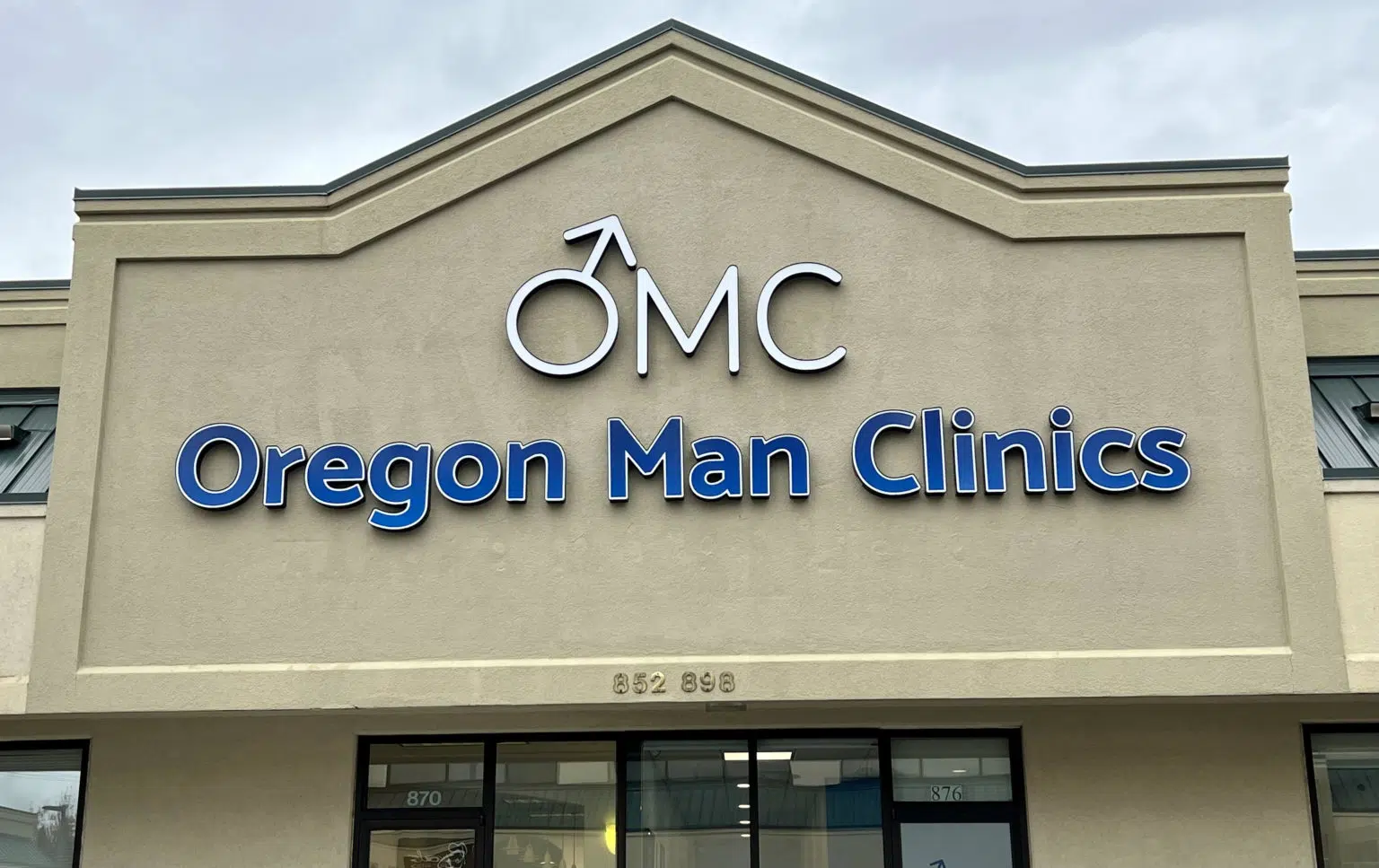
Testosterone is a hormone which plays a large part in the overall function of the body. It is the hormone behind the driving forces in men’s motivations, desires, goals, muscle and bone strength, libido, personality, mental focus, and so much more. The common belief that testosterone is behind aggressive behavior is false. In fact, a balanced testosterone level helps men deal with stressful situations more easily and improves moodiness.
Balanced levels also enhance male personalities. Testosterone levels can dip for several reasons. Low testosterone levels, or Low T, can be the result of many causes. Obesity, stress, chronic illness, and even normal aging can all be contributing factors to low testosterone.
Testosterone Replacement Therapy, or TRT, addresses low levels by supplementing testosterone through the administration of an injection. While it is important to address and solve the underlying causes of low testosterone levels with your healthcare provider, Testosterone Replacement Therapy will help maintain balanced testosterone levels to ensure a balanced life. At OMC in Bend OR and Springfield OR, we have years of experience in advanced endocrinology focusing on testosterone replacement therapy. This understanding of the treatment process will help create the right plan for every patient of ours.
What Are the Causes of Low Testosterone?
Low testosterone is most often a natural consequence of aging. Studies indicate that nearly half of all middle-aged men experience the symptoms of low testosterone. While aging is the most common factor contributing to low testosterone, the condition may also result from lifestyle habits, hereditary factors, and underlying medical conditions. For example, a man may have a higher risk of low testosterone as a result of:
- Heavy alcohol use
- Certain medications, such as steroids
- Obesity and extreme weight loss
- Obstructive sleep apnea
- A metabolic disorder
- Estrogen dominance caused by an environmental source such as bisphenol A (BPA)
- Hyperthyroidism
- Inadequate sleep
- Excessive stress
What Are the Symptoms of Low Testosterone?
The most recognizable signs of low testosterone are a decrease in sex drive and erectile dysfunction. While these may be common indicators, they aren’t the only changes that occur as your hormonal balance shifts. Additional signs that you could benefit from testosterone testing and optimization include:
- Low semen volume.
- Decreased energy levels.
- Anxiety, depression, and other mood changes.
- Decreased muscle mass.
- Decreased bone mass.
- Increased body fat, particularly in the midsection and chest areas.
- A decline in cognitive function, including memory.
- Hair loss.
- Difficulty sleeping, rapid heart rate, leg cramps, and difficulty concentrating – all signs of anemia secondary to low testosterone.
What Treatment Options Are Available for Low Testosterone?
A healthy lifestyle can help you naturally maintain your hormonal balance. However, factors outside of your control may still cause frustrating symptoms. To get low-T symptoms under control and ease the secondary effects of hormone imbalance, you might benefit from hormone testing and testosterone replacement. This form of therapy has been around for many years and is one of our most popular services. With an abundance of knowledge and practical experience, our team develops testosterone replacement treatments based on lab results, symptoms, and desired improvements. Your treatment program is unique to you and may include injection therapy, oral medications, lifestyle recommendations, and more. When you visit our facility in Bend, OR, you can expect a thorough consultation during which we discuss your concerns and the ways in which they can be managed.
How to Manage Healthy Testosterone Levels
In addition to getting the support that you need to normalize your current testosterone levels, you can help your body regulate its production and use of this vital hormone with the following habits:
- Prioritize sleep. Studies show that, after just one week of poor sleep, testosterone levels drop up to 15 percent.
- Maintain a consistent, healthy diet. Develop a way of eating that works for you and that includes healthy, whole foods, lean proteins, and healthy fats. Avoid yo-yo dieting.
- Get and stay active. According to research, an active lifestyle may help balance hormones even more so than weight loss.
- Manage stress. Chronic stress leads to dysregulated cortisol production. More cortisol means less testosterone.
- Supplement properly. Low testosterone doesn't necessarily require proprietary supplements. Some contain potentially dangerous ingredients. Instead, consider supplementing your vitamin D, DHEA, and magnesium.
What is Testosterone Replacement Therapy?
Testosterone replacement therapy is a personalized treatment program that is designed around your unique situation. Our team understands low testosterone as a neuroendocrine condition. Low testosterone does not occur in a vacuum and cannot be treated as such. This is why it is necessary to see a specialist when you want to reduce the effects of low testosterone on your health and livelihood. Here at Oregan Man Clinics, we take a holistic approach to testosterone replacement that looks at symptoms, lab results, and whole-body health.
What to Expect from Testosterone Replacement Therapy
Many men have been told Testosterone Replacement Therapy is an easy and simple process however, an effective treatment plan is more complex than just replacing testosterone. Hormones have complex interactions with the body and changing one hormone level can have a domino effect on all other hormonal levels and interactions within the body. To ensure safety, we analyze endocrine and metabolic functions to ensure TRT is effective and safe. We pride ourselves in providing the highest quality treatment plan through testosterone replacement therapy, controlling estrogen levels, preserving fertility, supporting growth hormones, and more.
Testosterone can improve or detract from one’s quality of life. Our goal, as medical providers, is to improve quality of life by creating an individualized plan to manage hormone levels while treating the cause of low testosterone levels. Because we focus on men’s health, we are uniquely situated to treat a variety of men’s health issues that can be caused or affected by low testosterone.
Testosterone Replacement Therapy typically - but not always - requires weekly testosterone injections and ancillary medication. Medications may include an Aromatase Inhibitor, which reduces the ability to convert testosterone to estrogen. When TRT is used in conjunction with managing the cause of low testosterone levels, the achievement of health potential and goals are maximized. TRT is associated with some risks; however, administration through injection, proper medication regimens, and routine quarterly labs help ensure a safe and effective process of resuming vitality. Several Harvard studies have found when TRT is administered correctly it reduces prostate problems, improves heart health, increases quality of life, and can prolong mortality. At OMC, we provide patients with tailored Testosterone Replacement Therapy programs to ensure the highest quality of treatment.

Who is an Ideal Candidate for Testosterone Replacement Therapy?
Men with low testosterone (hypogonadism) often experience low libido, difficulty attaining or maintaining an erection, poor energy, difficulty sleeping, mood swings and irritability, loss of muscle mass and weight gain among other symptoms. Treatment with testosterone, especially when combined with regular exercise and a healthy diet, can often improve these symptoms.
The symptoms of low testosterone are non-specific, however, and other potential causes should be explored by a qualified and experienced physician.
The ideal candidate for TRT is a man who, despite making serious efforts at improving his diet and exercise, lowering his body fat levels, and getting adequate sleep continues to have a low level of testosterone documented on a blood test and some or all of the symptoms mentioned above.
Many physicians use the ADAM Questionnaire as a screen for men who have low testosterone:
- Do you have a decrease in libido (sex drive)?
- Do you have a lack of energy?
- Do you have a decrease in strength and/or endurance?
- Have you lost height?
- Have you noticed a decreased "enjoyment of life"?
- Are you sad and/or grumpy?
- Are your erections less strong?
- Have you noticed a recent deterioration in your ability to play sports?
- Are you falling asleep after dinner?
- Has there been a recent deterioration in your work performance?
Affirmative answers to questions 1-7, or to any other 3 questions, provide a positive result on the ADAM questionnaire.
Meet With a Testosterone Specialist
Oregon Man Clinics (OMC) proudly provides patients from Springfield OR, Bend OR and surrounding areas with Testosterone Replacement Therapy (TRT). Contact our Springfield office at 541.508.4858 or our Bend office at 541.505.8773 to schedule an appointment today.

